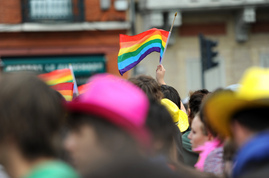
In chapter three, Maass discusses stakes. It's a scary question to think about, but if your character doesn't get what he or she wants, then so what? In my premise above, what if Kylie doesn't get to go to the championships, then so what? What is lost, besides her own personal dream?
Maass identifies three types of stakes: personal (for the character), public, and the author's own stakes, his or her reason for writing the novel. Writers should seek to elevate all three. I can up Kylie's personal stakes by meshing her desire to win with a desire to belong to the world of skating, a world that generally requires good looks and high finances to inhabit. If Kylie doesn't win, she's not only losing the opportunity but she's also proving that she doesn't belong in this world, that people who are overweight or poor can't skate. She is losing her ability to believe in herself, to believe that her dreams are reachable no matter what her background is. By incorporating the work for gay rights, I've raised the public stakes as well and conflicted them with Kylie's personal stakes. If Kylie doesn't take a stand in order to win, she thus undermines the work of those who are fighting for her acceptance. And this is part of my personal reason for writing this novel as well. I have close friends and family members who are gay and have shared their struggles with their feelings and coming out with me. Telling Kylie's story is a way for me to share pieces of their stories.
So what are the stakes in YOUR story? Why does it matter to your characters, you, and the rest of the world?

 RSS Feed
RSS Feed